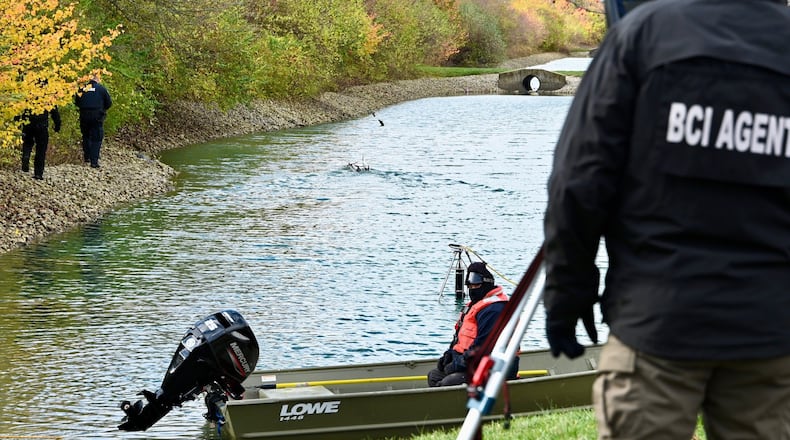This would be a huge undertaking for communities with new subdivisions in counties like Warren and Butler that use retentions ponds in new development.
“Anytime a body of water is easily accessible to children, I think we need to think a little bit further about that as a community. I feel as parents and the community in general, we have a moral obligation to try to keep children safe,” she said, a co-founder of EmPath for Autism, a 501c3 created as a resource for children and families affected by Autism Spectrum Disorder.
In November, 6-year-old Joshua Al-Lateef Jr., an autistic child, went missing from his West Chester Twp. at the Lakefront apartments, and was found 28 hours later in a retention pond on Wyndtree Drive. There are several ponds within the 30-plus-building complex.
“The chances of them wandering away is very high, and the chances of them wandering to water is also very high,” Williams said, adding that county and local building and zoning codes should incorporate safety measures for neurological disabilities just as are done with accessibility measures for those with physical disabilities.
She said the bill wouldn’t be for all bodies of water, just looking at ones that are near residences, a school or a playground. It’s about “starting small” and “making small changes fast.”
“It’s about looking at what we can do to help these kids with neurological disabilities along so they can live long, full lives,” Williams said.
Bodies of water, like ponds, do attract people, but those with autism they “often exhibit a strong fascination and attraction to water that goes beyond what the rest of us may experience,” according to report on the Autism Society of Florida.
Retention ponds, or wet basins, are one of two ways a developer manages stormwater on a property. These types of ponds retain stormwater runoff, the aesthetic option over a detention pond or a detention basin, which temporarily retains stormwater. They are also not for recreational use.
There are no uniform fencing requirements in Butler County for retention ponds, unlike the rules for pools.
Williams said she had reached out to some lawmakers to discuss the issue, and plans to contact more to “have some sort of safeguard around these detention ponds, so this doesn’t happen anymore, is all we’re looking for.”
About the Author

